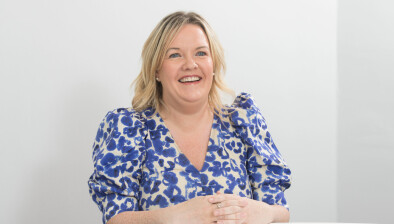Mike Kane: Sell your business before you need to

Mike Kane
Business succession expert Mike Kane discusses the advantages of selling a business when there is no immediate need to do so, exploring various exit strategies, and how owners can avoid pressure during negotiations.
“I’m thinking of selling my business when I reach retirement age – can you help me?” It’s a common question – and my advice to business owners is to sell when you do not need to.
There are many reasons for that. The first and obvious one is who is going to buy the business and secondly you are disclosing a key card in the negotiation by saying you have to exit.
With regard to the buyer population, assuming there are no family members to hand the business to, there are four potential exit avenues for any business.
The obvious one is a trade buyer, usually a competitor. The sales process with this will be difficult and the seller will eventually be required to disclose sensitive information and rely on a non-disclosure agreement.
A sale to a financial buyer may not be as hazardous in that respect but will be gruelling. You are also facing a professional buyer who will likely have a strict playbook to follow in terms of pricing, risk and documentation. It is not for the faint-hearted. You also have to run the business at the same time.
A form of management buyout may be possible. A very good solution is a “Vendor Initiated Management Buyout” (VIMBO). Generally, the seller will dictate the price, and the pace of the transaction and there will usually be limited due diligence and warranty coverage. This form of buyout does depend on a skilled management team being in place to take the reins, it can take time to achieve and there are ancillary concerns such as having robust restrictive covenants in place (non-compete provisions etc).
Finally, employee buyouts (EBOs) are becoming increasingly popular. While the attractiveness is a zero tax rate on the sales proceeds if a controlling interest is sold, there are complexities around an employee buyout/employee ownership trust – and it’s not the right solution for every business. It does have similar process characteristics to a VIMBO and that is where the attractions lie.
There are variations on the themes above and different funding solutions – debt, equity, vendor loan notes, earn outs and debt free/cash free and locked box pricing structures.
Timing is also everything. While a VIMBO or an EBO are more aligned with the vendor’s timetable and to a degree within their control, it still requires a degree of planning, tax clearances and a willing group of participants from within the business.
An external sale requires far more detailed planning around timing. In many cases a buyer needs to be found rather than selling off the back of an approach made to the company. The planning stage will take time and detailed interaction with the sell-side advisory team – usually legal, accounting and tax advisers. The process from appointing corporate finance advisers to executing a sale can be 12 months or so.
Selling under pressure weakens the negotiating position – for example selling at retirement age, a downturn in the particular market or in the wider economy or another unexpected event such as an illness or departure of a key member of the management team. All of these might contribute to a lower selling price and there will certainly be anxiety in the sell side advisory team about this.
Selling when you do not have to takes the pressure off, reduces the risks discussed above and allows you to exit your business with the best possible deal.
![]()
Mike Kane is a partner and head of business law at Turcan Connell







